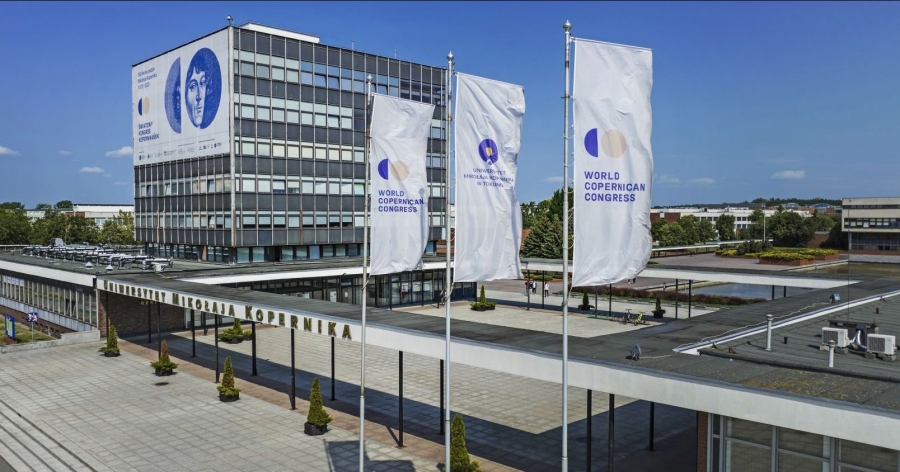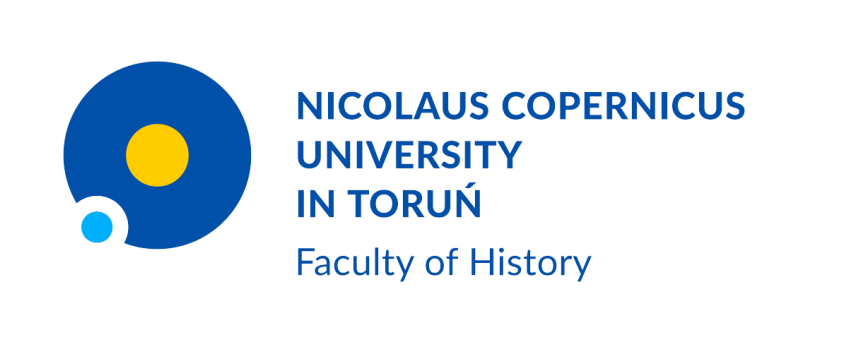
The final part of the celebrations of the World Copernican Congress touring Poland and following the map of Nicolaus Copernicus' life and profession is now on its way. From 12 to 16 September, Toruń will again be the venue for the congress' scientific and cultural events.
The World Copernican Congress is organised to mark the 550th anniversary of Nicolaus Copernicus' birth by three universities: the Nicolaus Copernicus University in Toruń, Jagiellonian University and the University of Warmia and Mazury, as well as the Institute of the History of Science of the Polish Academy of Sciences.
Up to six times Copernicus
After debates in Kraków by economists, philosophers and researchers in the history of these disciplines, and a discussion on the facts of life and the preservation of monuments from Nicolaus Copernicus' heritage in Olsztyn, the time has come to consider another set of topics related to the figure of the famous astronomer. Thus, historians, cultural and literary researchers, art historians, astronomers and historians of astronomy, and representatives of medical sciences will come to Toruń to participate in the discussions, which will take place in six thematic sections:
- The History of Astronomy section includes a conference entitled 'Copernicus and Astronomy: Continuity, Reform, and Dissemination' organised by the Institute of the History of Science of the Polish Academy of Sciences. Its aim is to review the state of research on pre-Copernican astronomy, Copernicus' astronomy and its early reception. It will consist of three panels: the legacy of Ptolemy's astronomy and the Alphonsian Tables, Copernican astronomy, and the early reception of heliocentric astronomy. More information about the History of Astronomy section
- The Cultural Studies section entitled 'Nicolaus Copernicus and culture of remembrance' is prepared by Nicolaus Copernicus University and is divided into three panels: historical memory, literature and theatre, and art. More information about the Cultural Studies section
- The History of Medicine section includes a conference 'Travel and Learning: Medical travels, Knowledge Transfer and Cultural Exchange in Central Europe over the Centuries', organised in connection with the 480th anniversary of the publication of "De revolutionibus orbium coelestium" and "De Corporis Humani Fabrica Libri Septem" and the 550th anniversary of Copernicus' birth, was prepared by the German-Polish Society for the History of Medicine. Its participants will examine the issue of medical travels in Central and Eastern Europe from the time of the great astronomer (who studied medicine in Padua) to the present day. More information about the History of Medicine' section
- The Medicine section entitled 'From Copernicus to the present day', will present profiles of the most eminent physicians associated with the Kuyavian-Pomeranian region from the 15th to the 20th century. The conference is organised by the staff of the NCU Collegium Medicum. More information about the 'Medicine' section
- The Education section entitled 'Copernicus in the 21st Century - Workshops on Tools Useful in Modern Education and Popularisation of Science' is aimed at teachers, educators and popularisers of science. The conference will consist of workshops on topics in modern education, including: the use of robots in the classroom; virtual reality in education, creating board games, preparing an escape room in a box, history in education, and online tools in education. More information about the 'Education' section
- The Youth section entitled 'Popularisation of the figure and achievements of Nicolaus Copernicus in education' is organised by the City of Toruń, the Board of Education in Bydgoszcz and the Nicolaus Copernicus Primary School No. 7 in Toruń. The event will serve as a summary of the National Contest of Knowledge about Nicolaus Copernicus addressed to primary and secondary school students, the 'School of Copernicus' Friends' project and a competition for teachers for a lesson scenario on Nicolaus Copernicus. More information about the 'Youth' section
During the Copernican World Congress from 11-15 September 2023, the 41st Congress of the Polish Astronomical Society will also take place. In 2023, the Society will celebrate its 100th anniversary. More information about 41. Meeting of the Polish Astronomical Society
Attendance at the Copernican World Congress is free, but registration is required for the proceedings of most sections.
Plenary sessions - online lectures
In addition, two lectures delivered on the occasion of the opening ceremony of the Toruń part of the World Copernican Congress and the closing ceremony of this year's World Copernican Congress will be available to the general public. The opening lecture will be given by Prof Andrzej Udalski from the Astronomical Observatory of the University of Warsaw, and the closing lecture will be presented by Prof Ewine van Dishoeck, former president of the International Astronomical Union. Both lectures will be streamed online on the NCU TV website.
Cultural events
The celebrations organised in Toruń as part of the World Copernican Congress will be accompanied by a number of cultural events, such as exhibitions and concerts, including a piano recital by Mateusz Krzyżowski - winner of the main prize at the 12th I. J. Paderewski Piano Competition in Bydgoszcz and a special award from the NCU Rector.
More details can be found on the website dedicated to the Toruń events of the World Copernican Congress.

 ul. Bojarskiego 1, 87-100 Toruń
ul. Bojarskiego 1, 87-100 Toruń